Candle-makers and scent lovers, tune in! In one corner, we have the versatile and vibrant fragrance oils, offering diverse and endless possibilities in scent creation. In the opposite corner: the timeless essential oils, distilled from nature itself to deliver freshness and authenticity in every drop.
Both have their dedicated followers and undeniable allure, vying for the prime position in our candle-loving hearts. But who will reign champion in the battle of aromas and become the ultimate fragrance oil for candles? Keep reading to see who wins!
In the Blue Corner: Fragrance Oils

Fragrance oils have firmly established themselves as popular choices in the candle-crafting world. Their versatility and breadth of options allow artisans to weave an endless tapestry of scents. Let’s take a closer look at what makes them so appealing, along with a consideration of potential drawbacks.
Pros:
-
A Palette of Possibilities: Delving into fragrance oils is like opening a treasure trove of scents. You'll find fragrances that essential oils just can't replicate. Think about the unique and distinct notes of 'Espresso'—capturing that freshly brewed coffee aroma. With fragrance oils, the sky’s the limit. You get to explore scents from the everyday to the unusual, ensuring your candles can stand out in a crowd.
-
Uniformity Across Batches: Consistency is key, especially when producing candles at large-scale. With fragrance oils, every drop is a replica of the last. They're crafted in controlled settings, ensuring that every batch smells just as captivating as the last, making it easier to promise the same beloved scent time and time again.
-
Cost-effective Crafting: Every candle maker appreciates quality that doesn’t break the bank. Given their synthetic nature, wholesale fragrance oils offer an affordable yet quality option. This makes them an ideal choice for those aiming to offer depth and diversity in their candle ranges without a hefty price tag.
- Seasonal Sensations: As the seasons shift, so do our cravings for different aromas. Ever wondered how to perfectly encapsulate the warmth of winter? Discover more in our seasonal candles post, highlighting popular choices like Christmas fragrance oils. Keen to craft candles for autumn? A scent that can’t be achieved from essential oils, a pumpkin spice fragrance oil plays the starring role. Truly, with fragrance oils, you're always equipped to capture the essence of any season, effortlessly.
Cons:
- Man-made Marvels: For all their versatility and range, it's essential to note that fragrance oils are synthetically crafted. While they excel at recreating a vast array of scents—some of which might not be achievable with essential oils—they don’t carry the natural essence of the source. Some purists might lean towards the authentic touch that only nature-derived oils can provide.
In the Red Corner: Essential Oils

Unveiling the magic that's bottled directly from the heart of nature, essential oil fragrances carry with them tales of sprawling fields, lush forests and the tender touch of the earth. Let's explore the charm and challenges of these pure extracts.
Pros:
-
Nature’s Authenticity: When you choose essential oils, you're tapping directly into Mother Nature's reservoir. Each drop is like a bottled memory of its source—be it a serene lavender field, a sprawling orange orchard or a fragrant rose garden. You're not just getting a scent; you're getting a story, rich with authenticity.
-
Wellness Benefits: Beyond just the pleasing aromas, essential oils carry the soul of their sources. The calming embrace of lavender can potentially ease stress, while the invigorating zing of lemon might lift your spirits. For those seeking benefits beyond just fragrance, essential oils promise a holistic experience.
- Eco-conscious Choice: For the environmentally savvy, essential oils tick the right boxes. When sourced responsibly, they represent a harmonious synergy between mankind and nature. They're the echo of our planet's richness, captured sustainably.
Cons:
-
Scope Limitations: Nature is wondrous, but even she has her limits. You might crave the rich aroma of a chocolate fudge cake or the specific crispness of freshly laundered linens. Sadly, these are scents that nature doesn't bottle, restricting the range of aromas you can achieve with essential oils.
-
Batch Inconsistencies: Plants are living beings, influenced by their surroundings. A lavender grown during a particularly sunny season might differ subtly from one cultivated during a rainier year. This means that the essential oils derived from them can also differ, leading to occasional inconsistencies between batches.
- Reduced Hot Throw & Toxicity: Essential oils pack a wide array of fragrances, but sometimes their 'hot throw'—that wonderful wafting aroma when burning—can be a bit shy. And on rare occasions, an unexpected scent might show up. Just a heads-up for pet lovers: some essential oils might not sit well with our furry friends when burnt, as detailed in this article.
- Safety Concerns with Low Flash Point: Here's a bit of candle science for you. Essential oils have what's known as a 'low flash point.' Using a generous amount in your candles might just turn your calming evening into a mini fireworks show. So, when crafting those perfect mood-setters, moderation is key!
- Higher Costs: Nature comes at a price. Extracting the pure essence of plants is a meticulous process, often requiring large volumes of plant material for a single bottle. This labour and resource-intensive method, naturally, pushes up the price.

And the Winner Is…
Essential oils? Authentic and soothing. But fragrance oils? They're like the Swiss army knife of scents. They can match that realness essential oils offer and throw in a ton of variety. For all the candle crafters out there, these little champions bring consistency and won't have you emptying your pockets.
Not sure how to choose the right scent blend for your range (or homemade candles)? Take a look at our scent creation guide. And if you’re keen to dive straight into our home fragrance oils, discover them here.


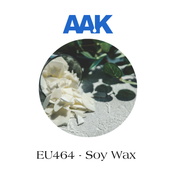

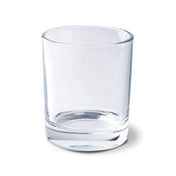
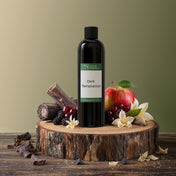
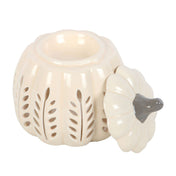
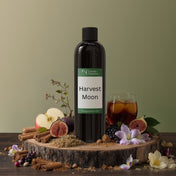



1 comment
Hi there, what is the UFI for essential oils or does this exist?
Look forward to your advice🙂
Thank you
Susan
———
NI Candle Supplies LTD replied:
Thanks for your question, Susan. If you are using essential oils in your products, and they trigger a health or physical hazard in the finished goods, you will need to create a UFI Dossier with your own UFI number and then register that dossier in the ECHA portal. There isn’t a specific, one size fits all UFI number that covers essential oils, or fragrance oils unfortunately. They are all individual per maker, and based on the hazards triggered in the final product. We offer a wide range of fragrance oils that do not need a UFI up to 10% for this reason, these can be found here: https://www.nicandlesupplies.co.uk/collections/no-ufi